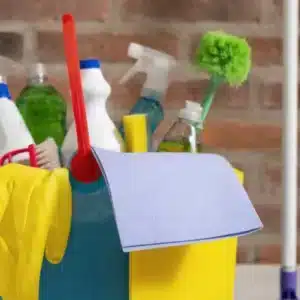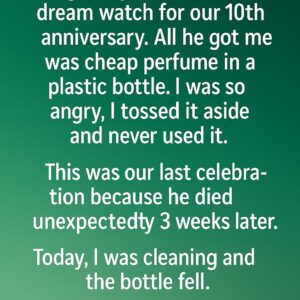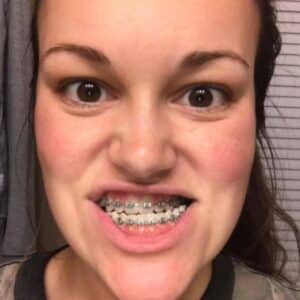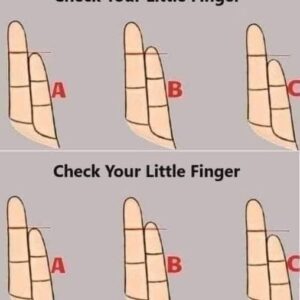I was 30 when I met Rick and already convinced I’d missed the doorway to something lasting. I wasn’t the woman with a scrapbook of wedding dresses, but I did picture a noisy home—tiny socks tumbling in the dryer, fingerprints smudging the glass, laughter lifting out of the kitchen like steam. Instead, I had a one-bedroom apartment, a gasping spider plant, and a job that filled my calendar but starved my heart. The silence at night felt like an accusation.
Rick changed the acoustics of my life. A high school biology teacher—steady, patient, soft-spoken—he had eyes that held more calm than I believed the world still owned. We met at a friend’s barbecue, where I baptized his shirt with a full pour of red within five minutes of hello. I sputtered apologies; he laughed, looked at the stain, then at me. “Well, now we’re officially introduced. I’m Rick.” It wasn’t fireworks. It was a quiet tide that kept showing up, rearranging the shoreline until the shape finally made sense.
Two years later we married, and our conversations began to drift toward midnight feedings and crayon murals on the fridge. We painted the spare room a soft gray. We assembled a crib we didn’t need yet, talking nap schedules like they were already ours. Time marched. The crib stayed empty. Hope caked in the corners like dust.
Treatments arrived like seasons—first with optimism, then with urgency, finally with routine. Rick learned the rhythm of syringes, the pinch, the press. I learned to translate numbers on spreadsheets as if order could coax life from the void. There was a hysteroscopy that promised answers and gave none, then a laparoscopy that revealed a web of scar tissue binding what should have been open. “We’ll clear what we can,” they said. We tried acupuncture in rooms smelling faintly of peppermint and determination. We tried prayer, new vitamins, old wives’ tales. We tried not to ache in front of each other. Each negative test felt like a tiny funeral. “I’m just so tired,” I whispered into his shirt after the third IVF. “I know,” he said, rubbing slow circles between my shoulder blades. “I still believe it’s going to happen. Somehow.” Sometimes I believed him back.
Seven years passed and hope thinned to tissue. My doctor folded his hands, kind eyes steady. “Shelby, Rick… continuing may be unwise. For your bodies. For your hearts.” Something cracked open. That night I said, “I think we should adopt.” Rick looked up as if I’d said the thing stuck behind his tongue. “Yeah,” he breathed. “I think we’re ready.”
The process made us specimens—interviews, home studies, references. Then, on a rainy Thursday, the phone rang. “There’s a newborn girl,” the agency worker said. “Healthy. She needs a home.” My throat closed. Rick took the call, voice steady. “We’re ready. Yes. Absolutely.”
We brought Ellie home the next morning, swaddled and warm, pink-faced with a fist that curled around my finger like it had been waiting for it. “She’s so small,” I whispered. “She’s perfect,” Rick said, awe widening his eyes. That first night he rocked her while I sat on the nursery floor with my heart cracked open to the air. “This is what it’s supposed to feel like,” I breathed. “She’s our miracle,” he said.
The feeling held for three days.
Then a flicker. Rick grew quiet, but not the sleep-deprived kind. He started taking calls in the backyard, pacing by the fence with one hand wrapped around his phone and the other caught in his hair. He lowered his voice when I came near. “It’s work stuff,” he said before I even asked. Ellie’s milk-and-lavender scent clung to my shirt; I told him about the little gasp she made before a yawn. “Yeah, she’s cute, Shel,” he murmured, and slipped outside again. The distance opened grain by grain.
One evening I walked past the nursery and heard his voice from the living room, taut and low. “Listen. I can’t let Shelby find out. I think… we might have to return the baby. We’ll say it’s not working out. That we’re struggling to bond. Something.” My heart slammed into the cage of my ribs. I stepped in before the part of me trained to be polite could stop me. “Return?” The word came out sharp. “Rick, what are you talking about? Why would we ever return our baby?”
He froze, phone to his ear, eyes wide. He ended the call and pasted on a smile that slid right off. “You must have misheard me. I was talking about the pants I bought. You’re exhausted. You need rest.” “I heard you,” I said, heat rising. “You said return the baby. Who talks like that?” He rubbed his face. “It’s stress. I didn’t mean—” “Instead of talking to me, you’re whispering to someone else and telling me I’m imagining things? Rick, who are you?”
For two days I asked gently, then directly. “Is this about the adoption? Are you having second thoughts about Ellie? About being a father?” He deflected. “You’re imagining things. Give me space.” He barely touched me. He barely looked at Ellie. When he did, his hands shook.
By the third day, dread drove me to Gina’s. My mother-in-law opened the door and softened at the sight of me. We sat at her table, two coffees steaming between us. I told her everything—Rick’s calls, his distance, the sentence that had split my chest. She closed her eyes and pressed her fingers to her temple. “Sweetheart,” she said, voice heavy, “I can’t betray my son.” I swallowed the sting. “I’m not asking you to turn on him. I need to understand what’s happening in my home so I can protect my baby if I have to.” She met my eyes. “He loves you. He loves that baby.” “Then why does he look at her like she’s a mistake?” “I’ll talk to him,” she said finally. “I’ll tell him he has to tell you the truth.”
A week wore on like wet wool. Then Rick came home early, stood in the doorway too long, and said, “I need to tell you something.” We sat across from each other at the kitchen table. “I’ve been carrying a secret,” he began. “I did something behind your back.” He swallowed. “After we brought her home, I noticed a birthmark on Ellie’s shoulder—same shape, same spot as mine. I told myself it was nothing, but I couldn’t stop thinking. I’d already ordered a DNA kit—don’t ask me why, some instinct. When I saw the mark, I swabbed her cheek. The results came two days ago.” The room tilted. “Ellie is… she’s my biological daughter.”
Silence pressed on us. “It happened late last year,” he said, eyes fixed on the table. “We’d fought about treatments. I was angry. I drank. I met someone—Alara. One night. I never saw her again. I didn’t know she was pregnant.” The world went sideways. “So when you saw the mark…” “I took the test.” He exhaled, shaky. “I didn’t tell you because I was terrified. I thought they’d take her, or you’d leave. But she’s here, Shelby. She’s ours. I reached out to the agency to confirm. They contacted the birth mother. She admitted everything and said she doesn’t want the baby. She’ll put it in writing. No custody fight. No strings.” The man I loved had cheated, lied, then let me rock the proof to sleep.
That night I held Ellie and watched the flutter of her lips, some sweet dream playing across her face. None of this was her fault. Not the conception, not the secret, not the quake that followed. She was innocent and already mine in all the ways that count. I tucked her into her crib and stood there, listening to her soft breaths, the hum of the monitor, the scrape of Rick’s chair behind me. “I never meant to hurt you,” he said. “I know,” I answered. “But you did.”
In the days that followed, I tried to imagine forgiveness like a dress I might learn to wear. Every time Rick reached for my hand, I felt the hollow place his betrayal had carved. The house looked like our home but felt like a replica—close enough to pass a glance test, impossible to live inside. Eventually I told him I wanted a divorce. He didn’t fight me. He nodded, eyes wet and resigned. We agreed to split custody. Ellie would not be asked to choose between the two people who loved her.
Weeks after he moved out, I sat in the nursery with Ellie asleep against my chest. The mobile turned slowly, shadows drifting like clouds across the wall. “She’s going to be okay, right?” I asked the quiet. She stirred, sighed, settled. “You’re loved, Ellie,” I said into her hair. “That’s what matters.” She may carry Rick’s blood. She carries my heart. Some miracles arrive wrapped in pain. They are still miracles.





